Every WhatsApp message could be your last
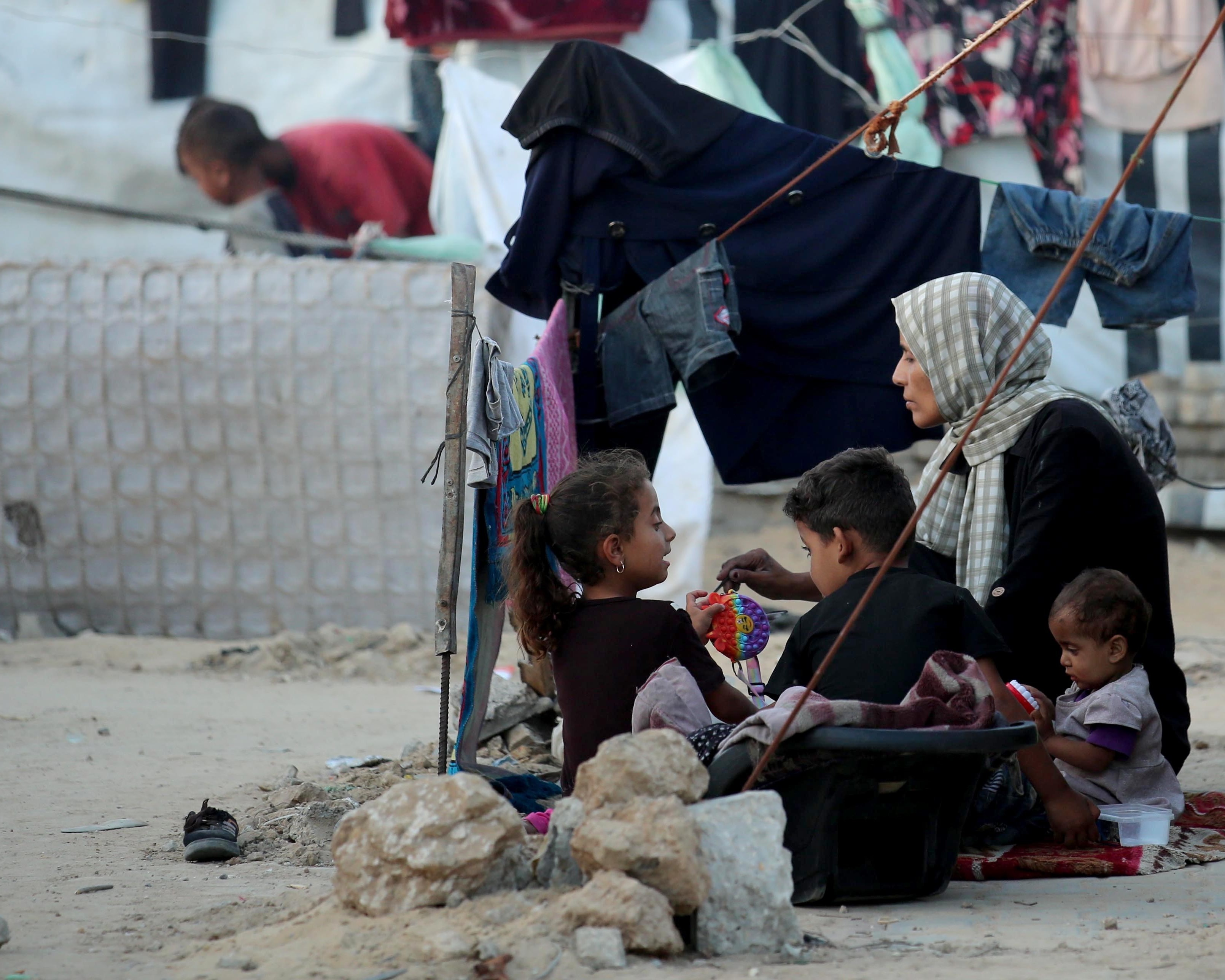
On the morning of 7 October, 45-year-old Iman Abu Hasira was making breakfast for her daughters. As always, they spent the morning together as a family. Suddenly she heard rockets in the sky over Gaza. Iman was frightened and told her children not to go to school that day.
At first, Iman thought that the howling of the rockets was the sound of Israeli bombs, a sound with which people in Gaza are familiar: a fleeting storm in a teacup. She was shocked when a neighbour called out to her, gasping and frightened, that Palestinian groups, in particular Hamas, had attacked Israeli towns in the so-called “Gaza Envelope”.
Iman didn't believe it and grabbed her phone: videos and photos of the attack were already circulating online. At that moment, Iman knew that war was coming to Gaza.
Shortly afterwards, the Israeli military ordered residents of northern Gaza to flee to the south. Iman fled with her three daughters and one son. Her husband refused to come with them.
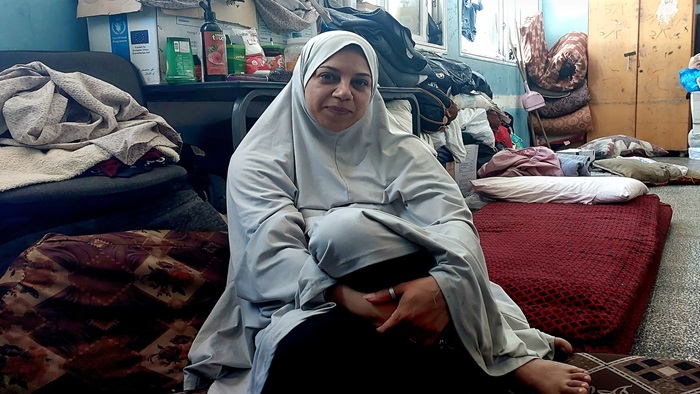
During the war, the Israeli military severed the connection between North and South Gaza by setting up military posts along the Netzarim Corridor, which runs from east to west through the middle of the Gaza Strip. The Israeli army has prevented Palestinians from returning to the north to this day.
As Iman sits in a school that has been converted into a makeshift shelter in Al-Bureij in southern Gaza, she says: “My husband and I had so many plans: to educate our children, to buy a new house, maybe to travel abroad. From one day to the next, we lost everything. The war destroyed our home and our lives. Nothing is as it was before.”
Without her husband, Iman is solely responsible for her children. “For months, I have had to endure the hardships alone: standing in a long queue to get water, chopping wood so that we can make a fire, and protecting my daughters.”
Every now and then, Iman Abu Hasira has been able to speak to her husband and reassure herself that he is doing well. The war has separated them. They have nothing left but a few conversations and messages full of nostalgia, for comfort. “We didn't want this war. Like everyone else, we just want peace and security,” explains Iman.
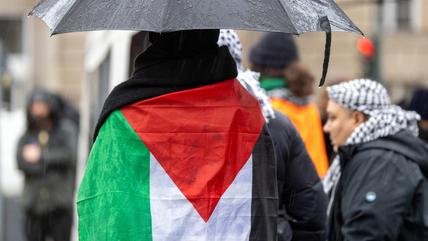
"This is no longer my country"
The Hamas attack on 7 October 2023 was a transformative experience for much of Germany's Palestinian diaspora. Many lost relatives in Gaza, along with their trust in the German media. Four Palestinians in Berlin share their experiences.
With four children in a tent
Like Iman, 42-year-old Laila al-Mabhuh also fled without her husband. He too refused to leave the north. However, unlike Iman, Laila thought she would be able to return to her house after a few days, maybe a week.
A year has passed since then, but Laila still doesn't know when she will be able to return. “For a year now, we have been living in a state of war and mourning. This is the bloodiest war we have ever experienced in Gaza. Nothing in Gaza has been spared.” Laila and her four children live in a kind of tent that she built herself out of corrugated iron. Before that, she was housed in schools, but again and again, she was forced to flee from school to school.
The United Nations estimates the population of the Gaza Strip at 2.1 million. One year on from the start of the war, the number of internally displaced persons stands at 1.9 million. That’s nine out of ten people in Gaza. Many of them have had to flee multiple times due to the Israeli military's evacuation orders and the extensive destruction in the Strip.
Just as the families of the Israeli hostages are waiting for a deal to secure the release of their loved ones, Palestinians in Gaza are also dreaming of an end to war, which would enable the internally displaced to return to their homes and to their relatives in the north. The return of internally displaced people is one of the points on which the negotiations for a ceasefire have so far failed.
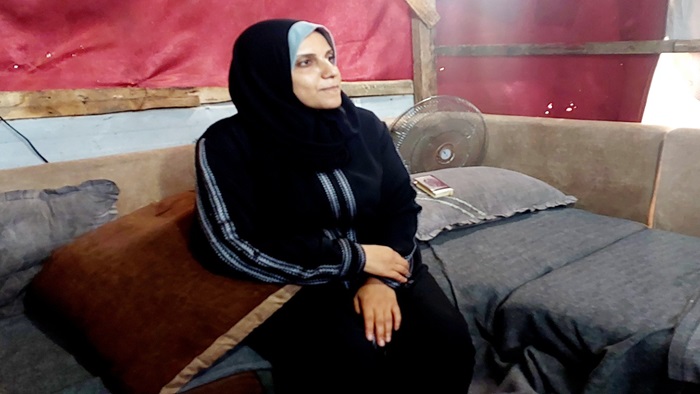
“The scenes of the Nakba haunt me”
Rami Yunis is separated from his sweetheart too. For two days, the 27-year-old did not even hear from his fiancée, Maisa Ahmad, 23. Then he received the message: “Hello, I'm fine... I miss you.” The short message allowed him to breathe a sigh of relief.
Rami and his fiancée were in the middle of planning their wedding, scheduled for December, when the war started and ruined their plans. Seven months ago, Rami and his family fled the bombs to Deir al-Balah in southern Gaza. Maisa stayed with her family in the north. Mobile phone messages are the only remaining connection between the pair.
“Israel was thrown completely off balance by 7 October. But we paid a high price,” Rami told Qantara. “I didn't think the war would last a year. We fled because we experienced literal hell in the north. We spent most of our time under the stairs for fear of the bombs.”
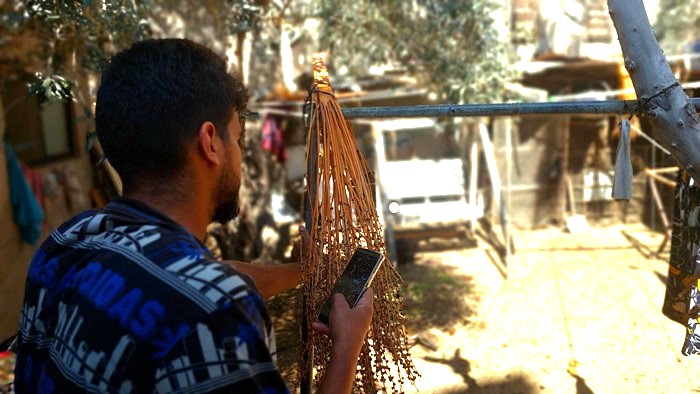
At the other end of the Gaza Strip, Maisa is waiting for her fiancé to return. On the phone, she tells Qantara: “I still don't know when Rami will come back. But I can't leave the place where I grew up either, because the scenes of the Nakba of 1948 when my ancestors were driven from their homes, haunt me like a nightmare.”
Rami and Maisa fear that any one of their messages could be their last. “The conditions here are catastrophic,” says Maisa. “The smell of blood and explosives is everywhere. But the most important thing is that he returns to me safely.”
© Qantara.de
